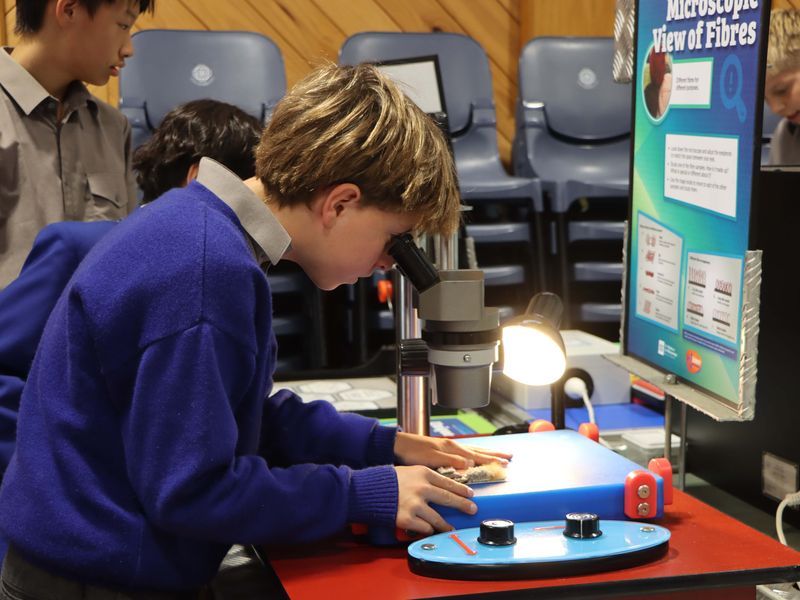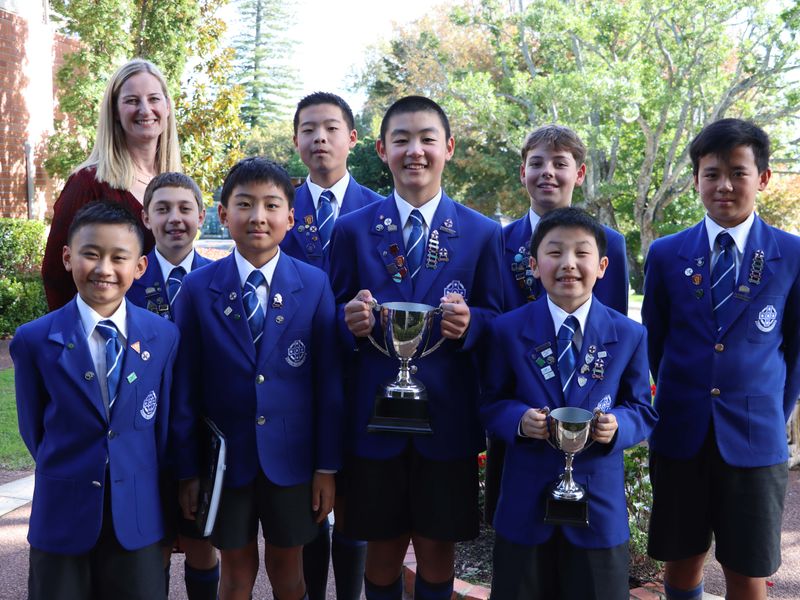
Is Competition Healthy?
Is Competition Healthy?
November 26, 2012 at 5:25 PM
When doing their schoolwork, some students focus on doing the job as well as they can and direct most or all of their attention to getting it done. Other students are mainly focused on what mark they’ll get, how their schoolwork will be judged by the teacher and how they compare with other students. The difference between these two approaches is that the first one is based on a ‘Mastery’ Goal approach and the other is ‘Performance’ (or competition) focused.
Students who are mastery focused are mainly intent on:
- doing the school work
- developing new skills
- improvement
- setting personal bests
- understanding new things
- doing a good job for its own sake and not just for rewards
Students who are performance or competition focused are mainly focused on:
- how their schoolwork will be evaluated or judged
- the marks they will get
- how they compare with other students
- doing better than other students
- knowing more than other students
According to the research undertaken by Martin (2003) students who are mastery focused tend to enjoy school, are enthusiastic in class, are reasonably relaxed in their study, persist when things get challenging and get better marks. Students, on the other hand, who are performance or competition focused are most likely to find school stressful, pay less attention to their schoolwork, are more anxious, fear failure and don’t do as well as mastery focused students.
Is competition then a healthy thing?
Firstly, performance (or competition) focused students sometimes don’t always pay enough attention to schoolwork. This is because part or a lot of their attention is focused on things that aren’t central to schoolwork, such as how they compare with other students, how the schoolwork will be marked and whether they know enough to pass that test. The more their minds are thinking about all these things, the less they can focus on what really counts. On the other hand, most of the mastery focused students’ attention is on doing the job and their particular work goals and so they tend to be better at their schoolwork.
Secondly, performance (or competition) focused students have a narrow view of success. They view success as getting better marks than other students, being the top of the class, gaining the maths prize, knowing more than other students or being the best. Students who see success in this way actually make it very hard for them to succeed. The reality is that only a few students can get to the top of the pack and they open themselves up to repeated failure if their goals are not realistic. The phrase which is often heard by these students is, ‘You try your hardest to do something, but there’s always someone ahead of you.’ When students do not make the goals they set, their self-belief starts to drop and their fear of failure starts to rise.
On the other hand, mastery focused students have a broad view of success. Sure, their view of success includes getting good marks but they also see success in terms of learning new things, improving, reaching personal bests and developing new skills. Because these goals can be achieved by anyone, mastery focused students open up more opportunities for success and this gives them a healthy self-belief and a sense of ‘I can do this’.
Thirdly, performance focused students tend to have a view of intelligence that can make life more difficult for them. They have a fixed view of intelligence as in ‘I can’t improve’ and ‘I am stuck with how smart I am.’ This way of thinking can result in students feeling helpless if they don’t achieve well, as they don’t believe they can improve. For them it is either ‘I win’ or ‘I lose’. On the other hand, mastery focused students have an improvement view of intelligence – for example by looking at the next steps they need to take in their learning in order to improve, they are more optimistic and hopeful.
Finally, when performance students don’t do well at school they tend to blame their personal lack of intelligence, whereas mastery focused students tend to blame things like the lack of effort that they put in or their poor organisation and revision skills. Because competitive students see their intelligence as fixed they don’t feel they have much control over improving next time.
How can parents help foster a mastery approach over a performance approach to learning with their children?
There are six direct ways according to Martin (2003) that you can increase your child’s mastery learning focus. They are:
- increasing the emphasis on your child achieving their own personal best
- reducing comparisons with other children
- encouraging curiosity and taking an interest in what your child is interested in
- encouraging active learning
- recognising that the journey is just as important as the destination
- focusing on effort and strategy more than ability and intelligence
Why focus on competition?
The word ‘competition’ originated from the idea of a group of people ‘searching together’ to find ways to perform to their potential. Originally competition was not about beating other people but about using other people as an inspiration to challenge your thinking and to push yourself to a higher level than you have achieved at before. Competition has at times lost its way and the challenge for all of us is to take the best parts of competitiveness and create conditions where students can deal and thrive with competition. There are many students who don’t have a problem with competition and are energised by it and, whether we like it or not, we live in a world where competition is a reality of life and students need to be prepared to deal with it.
How parents can help with competition
- Encourage your child to compete with their own previous performance or strive to reach personal bests even when engaged in competition. Get them to focus on their personal standards by set these as their own benchmark for success.
- Encourage your child to see others as an inspiration to bring out their best rather than seeing others as people to beat – friendly competition rather than ‘dog-eat-dog.’
- If your child doesn’t compete successfully, encourage them to see their effort (how hard they work) and strategy (preparation, planning) more than their ability or intelligence as the keys to doing better next time – this keeps them in control and increases their optimism
- Make it clear to your child that if they don’t compete successfully, this doesn’t mean they are less of a person or you think they are less worthwhile – this will reduce their fear of failure in competition
- If your child doesn’t do so well in competition show them how to look for ways that they could improve and reset their personal bests so that the goal is realistic and achievable
The reality is that the world celebrates those who are the best and so it can be hard for your child not to see this as the mark of success. To compensate for this narrow view of success we need to celebrate the broad indicators of success – the hard work, effort, positive attitude, the development of new skills and progress and, above all, the personal bests that your child reaches. Encouraging the mastery focus to learning, as discussed above, is a real key to this.
Sandra Hastie, Head of Primary
Reference: Martin A. (2003) How to Motivate Your Child for School and Beyond Bantam, Australia









